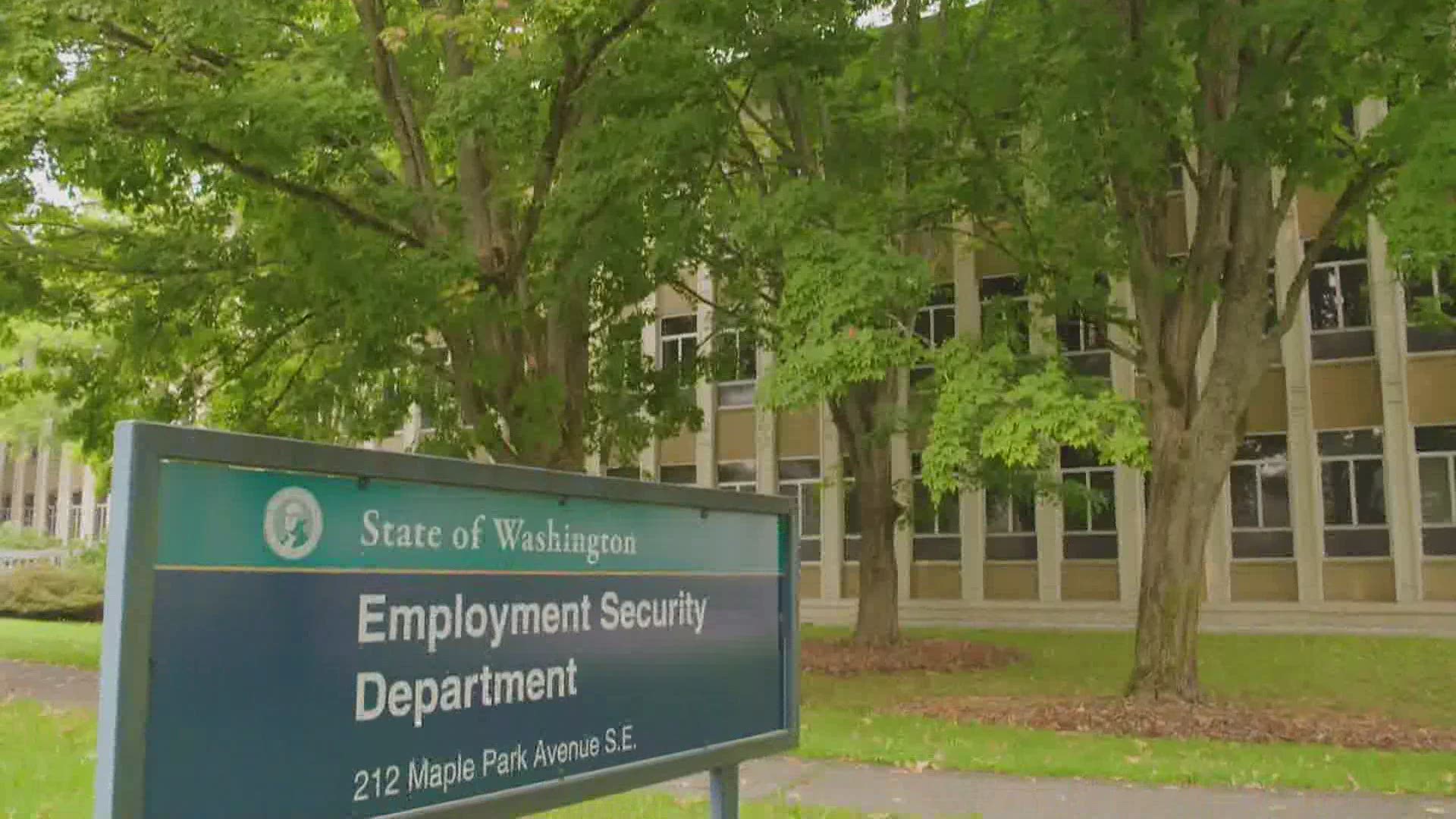SEATTLE — Editor's note: The above video on fixes to the Employment Security Department originally aired in April 2020.
A Nigerian man accused of defrauding the Washington Employment Security Department (ESD) of hundreds of thousands of dollars during the COVID-19 pandemic was arrested Friday.
Abidemi Rufai, 42, of Lekki, Nigeria was taken into custody at John F. Kennedy International Airport in New York before boarding a flight to Amsterdam. Rufai was arrested on allegations of wire fraud.
“This is the first, but will not be the last, significant arrest in our ongoing investigation of ESD fraud,” Acting U.S. Attorney Tessa M. Gorman said in a statement.
Between March and October 2020, Rufai allegedly submitted dozens of unemployment claims using stolen identities, trying to get ESD to pay out more than $350,000 in benefits, according to court documents.
Rufai is just one of the people investigators believe filed fraudulent unemployment claims in Washington last year, leading ESD to lose $646 million. Of the misappropriated funds, Washington has reclaimed $369 million.
RELATED: Washington lawmakers say Employment Security Department's customer service fixes aren't enough
To access ESD’s online portal and file claims, Rufai used a Gmail email address along with personal identifying information of Washington residents, such as names, birth dates and social security numbers.
To keep ESD from recognizing that multiple claims originated from the same email address, Rufai inserted a period in various locations of the email address, which ESD read as different accounts. However, Google disregards periods in email accounts, allowing all claims to funnel to the same Gmail account, according to court documents.
Rufai used that single Gmail account to file 102 claims for ESD benefits, according to investigators. Rufai also used that account to file for benefits in 10 other states.
Between March 3 and Aug. 2, 2020, investigators say Rufai received $288,825 into a Citibank checking account – $236,701 of which was transferred out over the same time period. Funds were also paid out to online payment accounts or wired to bank accounts, which were then mailed to Rufai's brother's address.
Investigators tracked down Rufai through the phone number associated with the Gmail account, which was also listed on Rufai’s 2019 visa application.
Rufai was in the U.S. from Feb. 19, 2020 to Aug. 9, 2020, according to documents. While Rufai was in the U.S. he told the federal government he was staying with his brother in Jamaica, New York.

